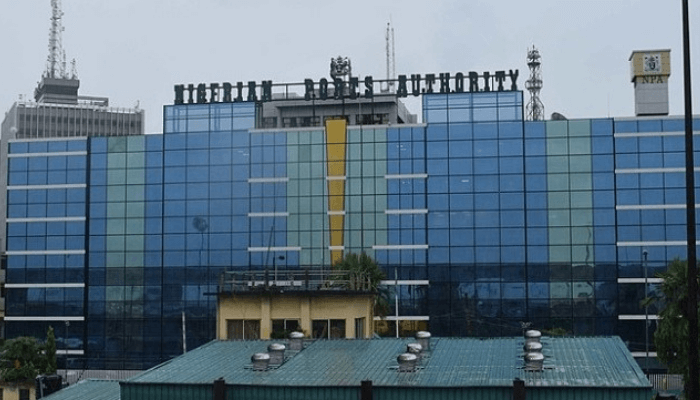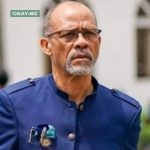In a determined move to elevate the performance of its crucial maritime gateways, the Nigerian Ports Consultative Council (NPCC) has announced a strategic alliance in the making with the British Ports Association (BPA). The initiative, revealed by NPCC Chairman Mr. Bolaji Sunmola during the council’s quarterly meeting in Lagos on Friday, signals a significant step towards reforming and repositioning Nigeria’s maritime sector for enhanced efficiency and global competitiveness.
The meeting, themed ‘Digital information and data management for sustainable marine and blue economy,’ also marked the inauguration of the NPCC’s pioneer Board of Trustees (BoT) members. Addressing stakeholders, Mr. Sunmola underscored the pivotal role of Nigerian seaports as the “lifeblood of the nation’s economy.” He emphasized that inefficiencies within the port system have far-reaching consequences on national productivity and revenue generation, while a robust and collaborative approach holds the key to unlocking Nigeria’s potential as a regional maritime powerhouse.
“Every inefficiency at the port gate ripples across our national productivity. Every delay in customs processing translates to a loss of revenue. Every misalignment in our regulatory framework weakens investors’ confidence. But every solution we build together brings us one step closer to transforming Nigeria into a regional maritime powerhouse,” Mr. Sunmola stated, highlighting the urgency and potential of the impending partnership.
According to the NPCC Chairman, a delegation is slated to travel to London to engage with the BPA, aiming to foster an exchange of ideas and best practices that can be adapted to the Nigerian context. He stressed the NPCC’s role as a crucial intermediary, “a bridge between government and the private sector, between ideas and execution, between challenges and real solutions.” The inauguration of the BoT, comprising experienced individuals such as former Executive Secretary of Nigerian Shippers’ Council, Hassan Bello, and Senior Advocate of Nigeria, Mrs Jean Chiazor Anishere, is expected to fortify this bridge with invaluable wisdom and strategic oversight.
Mrs. Anishere, the Vice Chairman of NPCC, elaborated on the council’s ongoing re-engineering process, which includes the formal registration with the Corporate Affairs Commission, the establishment of an active website, and the revitalization of the NPCC secretariat. She also highlighted a significant Memorandum of Understanding with the Nigerian Ports Authority (NPA) and a partnership with the Council for the Regulation of Freight Forwarding in Nigeria (CRFFN) aimed at enhancing port efficiency and training standards.
“The new NPCC has been registered with the Corporate Affairs Commission, which beefs up its legitimacy and operational integrity. We now have an active and engaging website. We have revamped the NPCC secretariat,” Mrs. Anishere affirmed.
The NPCC’s outreach extends beyond national borders, with strategic engagements with the Nigerian-British Chamber of Commerce, Nigerian Employers’ Consultative Association (NECA), and the Federal Ministry of Industry, Trade and Investment. Looking ahead, the council has secured a presence at the Offshore Technology Conference 2025 in Houston, Texas, signaling its ambition to forge global connections and learn from international best practices.
In his goodwill message, Mr. Thompson Akpabio, representing the Director-General of NECA, urged the newly inaugurated BoT to be impactful, advocating for industry-led discourse and sponsoring legislation that positively impacts the ports sector, while considering the perspectives of labor unions, operators, and global standards. He assured NECA’s readiness to collaborate with the NPCC in creating a more efficient port environment.
Professor Bamidele Badejo of Lagos State University shed light on critical challenges hindering the growth of Nigeria’s marine and blue economy, particularly in the realm of marine data management and digital information systems. He emphasized the urgent need for a robust, technology-driven framework to effectively harness the nation’s vast ocean resources.
“There’s also the issue of data privacy and ownership. Striking a balance between open-access information and protecting proprietary interests or national security concerns continues to be a delicate challenge,” Professor Badejo noted, underscoring the complexities involved in the digital transformation of the maritime sector.
The newly inaugurated members of the NPCC Board of Trustees, including notable figures like Chief (Mrs.) Chinwe Ezenwa, Alhaji Muhammed Bambado, Alhaji Abayomi Adigun, and Mallam Bello Gwandu, were sworn in by Justice Folashade Bankole Oki (Rtd). Their collective experience and expertise are expected to provide strategic direction and impetus to the NPCC’s mission of driving efficiency and sustainability within Nigeria’s vital port system. The anticipated partnership with the British Ports Association holds the promise of injecting fresh perspectives and proven methodologies into the Nigerian maritime landscape, ultimately aiming for a more streamlined, technologically advanced, and economically impactful port sector.













